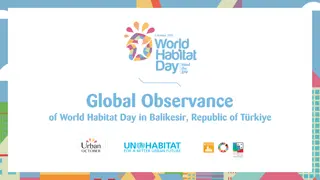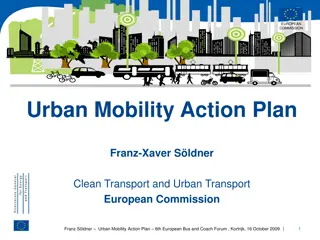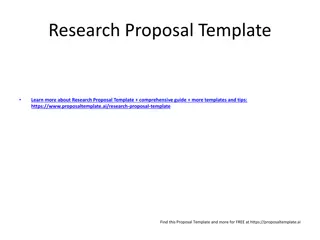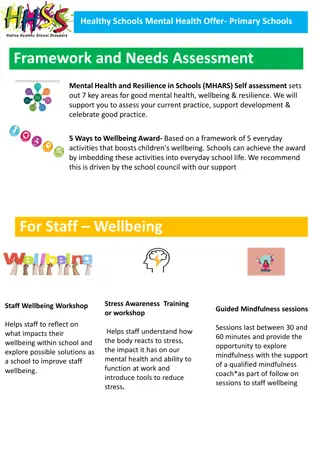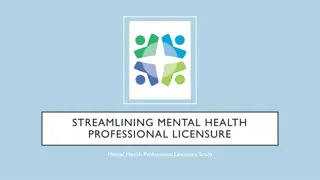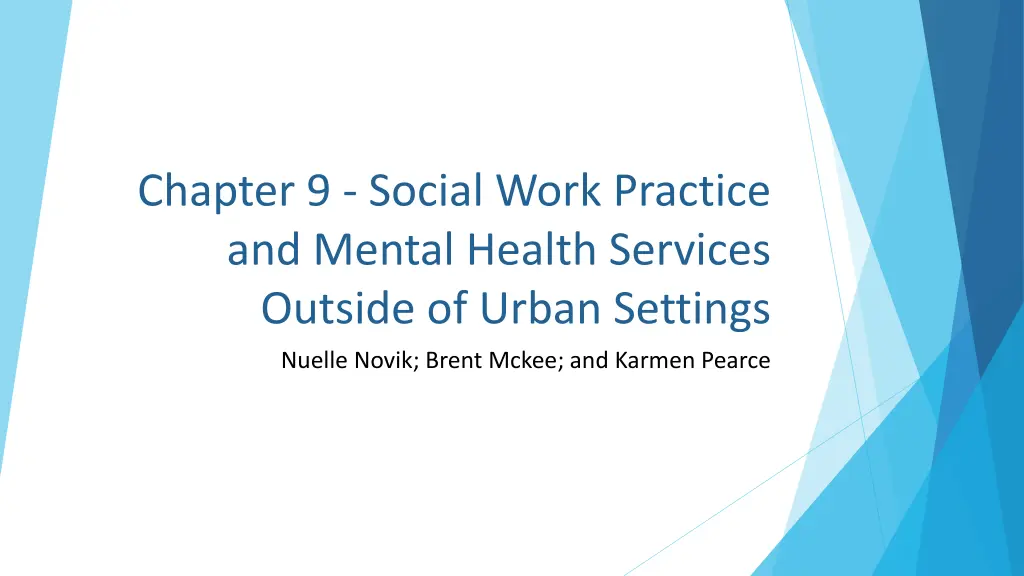
Social Work Practice in Rural Mental Health Settings
Explore the challenges and nuances of providing mental health services in rural and remote communities from a social work perspective. Learn about mental health issues, stigma, and barriers faced outside urban settings, with a focus on practice areas and policy implications.
Download Presentation

Please find below an Image/Link to download the presentation.
The content on the website is provided AS IS for your information and personal use only. It may not be sold, licensed, or shared on other websites without obtaining consent from the author. If you encounter any issues during the download, it is possible that the publisher has removed the file from their server.
You are allowed to download the files provided on this website for personal or commercial use, subject to the condition that they are used lawfully. All files are the property of their respective owners.
The content on the website is provided AS IS for your information and personal use only. It may not be sold, licensed, or shared on other websites without obtaining consent from the author.
E N D
Presentation Transcript
Chapter 9 - Social Work Practice and Mental Health Services Outside of Urban Settings Nuelle Novik; Brent Mckee; and Karmen Pearce
Introduction This chapter will discuss: The characteristics of rural, remote and northern communities that affect mental health service delivery from a social work perspective. Select mental health-related issues. Attitudes and beliefs that result in stigma related to mental illness, and towards those experiencing mental health challenges.
Learning Objectives By the end of this chapter you will: Understand the scope of practice of social workers providing mental health support services in rural, remote and northern settings. Describe factors influencing mental health and addictions outside of urban settings. Identify common types of mental health concerns found in rural, remote, and northern settings. Understand the barriers and enablers for social workers at the micro-, mezzo- and macro-levels of mental health service provision in rural, remote, and northern settings. Recognize how the stigma surrounding mental illness affects service access in locations outside of urban settings, and how to identify strategies to reduce that stigma.
Practice Area and/or the Population of Focus The Canadian Mental Health Association [CMHA] describes mental illness as a disturbance in thoughts, feelings, and perceptions that is severe enough to affect everyday functioning. Substance misuse is often linked to poor mental health or mental illness (CMHA, 2021). Internationally, and in most jurisdictions across Canada, supports and services are often offered to address both mental health- and addictions-related issues simultaneously.
Overview of Policy and Service Delivery Issues Mental Health Issues and Stigma Due to stigmatization, people may delay seeking help, may exit treatment prematurely, or may completely avoid seeking services. Stigma can impact social activities for individuals experiencing mental illness, along with education, housing, and employment; the result is often social isolation. Stigma in the rural and remote areas of Canada can be further compromised by a shortage of services in the areas of mental health and addictions, and difficulty in accessing those services.
Overview of Policy and Service Delivery Issues Substance Use and Addictions The topic of addictions is vast as it includes the abuse of illegal substances, the misuse of legal substances, as well as compulsive behaviors involving gambling, internet/gaming, and sex. The misuse of alcohol and drugs is influenced by individual, cultural and social factors which can serve as protective and/or risk factors. Navigating the system to help support individuals with substance use disorders can be especially challenging in rural and remote locations, due to limited outpatient and inpatient services and waitlists.
Overview of Policy and Service Delivery Issues Chronic Mental Illness Long-term and chronic mental illness is multi-faceted and complex, requiring a coordination of support and collaboration beginning when the individual seeks ongoing support, and continuing as they enter into the recovery and long-term support process. Individuals with Serious Mental Illness typically experience gaps in services and these gaps are more pronounced in rural and remote locations that lack community resources and in-patient capacity.
3 Levels of Social Work Practice A barrier to access is understood as any process or intervention by which access to mental health supports is impeded. Enablers are defined as any process or intervention by which access to mental health services and wellbeing is facilitated (Baxter et al., 2022; Lister et al., 2021). The following conceptual model shows the enablers and barriers to mental health support availability in rural and remote practice settings, and provides examples of micro-, mezzo- and macro- levels of practice that are impacted.
Conclusion As service providers living and practicing outside of large urban centres, social workers are well-positioned to provide information, assessments, interventions and ongoing supports to individuals struggling with mental illness and addictions. A lack of understanding leads to fear and negative attitudes towards individuals living with mental illness and addictions, and it prevents people from seeking help for themselves and from providing appropriate support to people around them. Just as social workers provide information, supports, and care to those in rural and remote communities who struggle with challenges to their mental health; social workers who practice in rural and remote settings must also work to maintain their own mental health and wellness.
Additional Resources Mental Health Commission of Canada [MHCC]. (2021). Answering the call: Strategic plan 2021/2030. Available on the Mental Health Commission of Canada website.
References Baxter, L., Burton, A., & Fancourt, D. (2022). Community and cultural engagement for people with lived experience of mental health conditions: What are the barriers and enablers? BMC Psychology, 10(71). Canadian Mental Health Association [CMHA]. (2021). Mental health and mental illness: What s the difference? https://cmha.ca/brochure/fast-facts- about-mental-illness/ Lister, K., Seale, J., & Douce, C. (2021). Mental health in distance learning: A taxonomy of barriers and enablers to student mental wellbeing. The Journal of Open, Distance and e- Learning.










